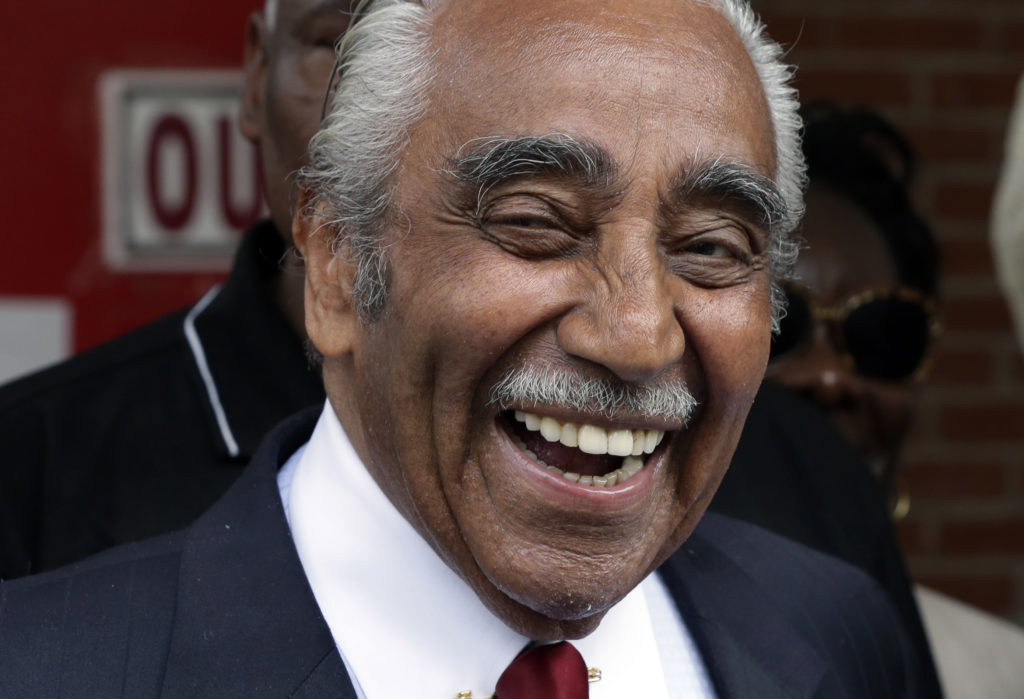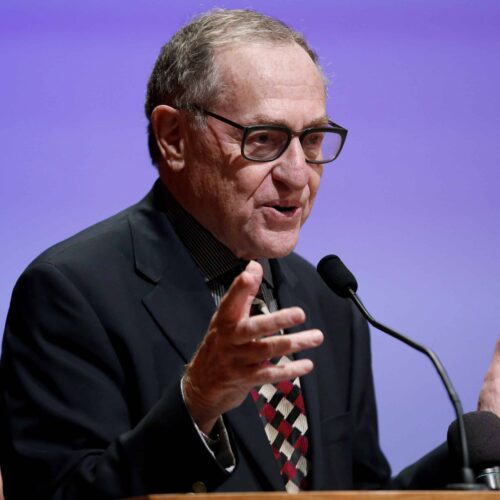Introduction
Thank super lawyer Alan Dershowitz — at least in part — for Rep. Charlie Rangel, D-N.Y., suddenly reversing his decision to skip Israeli Prime Minister Benjamin Netanyahu’s contentious March 3 address to Congress.
Dershowitz confirmed to the Center for Public Integrity that he spoke to Rangel by phone about Netanyahu’s speech, which Republican House Speaker John Boehner had organized without President Barack Obama’s input.
“We had a serious, substantive conversation,” said Dershowitz, a staunch pro-Israel advocate who argued that all members of Congress attend the March 3 speech. Dershowitz didn’t offer details.
Another notable lawyer — Skadden, Arps, Slate, Meagher & Flom partner Kenneth J. Bialkin — said Dershowitz indeed played an instrumental role in convincing Rangel to reconsider.
Bialkin, a Republican active for decades in New York City’s legal, philanthropic and Jewish civic circles, had also written a letter to Rangel urging him to attend Netanyahu’s address.
“Dershowitz — he thinks he convinced Rangel to change his mind,” Bialkin said. “I don’t know if it was my letter, or Dershowitz, but Rangel changed his mind.”
In an email dated March 4 and reviewed by the Center for Public Integrity, Dershowitz wrote Bialkin to inform him that he spoke with Rangel by phone “for nearly an hour” before Netanyahu’s speech.
The argument that persuaded Rangel to attend, Dershowitz wrote, was that the congressman’s absence “would be seen as a divisive Black-Jewish issue.”
In a preceding email, Bialkin praised Dershowitz “for performing a service to the entire Jewish community and the African-American community because if Rangel had not changed his mind, I believe, there would have been a very big backlash from elements of the Jewish community.”
On March 31, Bialkin, a major political donor over the years to both Republicans and Democrats, contributed $250 to Rangel’s campaign committee, according to federal records. Bialkin said Rangel doing a “statesman-like thing” by attending the Netanyahu speech prompted his donation.

Rangel, who does not plan to seek re-election in 2016 after 23 terms, “made an independent decision to attend the speech,” Rangel spokeswoman Hannah Kim said in a statement in response to questions about his decision. “As you can imagine, he received hundreds of emails and calls from constituents and friends, including Mr. Dershowitz, both trying to convince him to attend and not.
Rangel had previously said he ultimately attended the speech at the behest of “constituents and friends,” but refused to say who, specifically, had lobbied him.
(Update, 8:22 p.m., May 19, 2015: In a phone call Tuesday evening, Rangel himself reiterated that he “received hundreds of calls from all over the country from people I respect” regarding the Netanyahu speech.
“I think I’ve met Dershowitz a couple of times, and I respect the call he made,” Rangel said of their recent phone conversation.
But the notion that Dershowitz single-handedly changed his mind “has nothing to do with the facts of the circumstances” surrounding his attending the Netanyahu speech, Rangel said.)
The run-up to Netanyahu’s speech was bathed in political brinkmanship and partisan sniping.
President Barack Obama had deemed Netanyahu’s address a “mistake,” particularly since it took place days before Israeli elections. Obama’s National Security Adviser Susan Rice called the speech “destructive” to U.S.-Israeli relations. Top Republicans asserted that Congress — independent of the White House — had every right to hear from a foreign leader.
Up until the night before Netanyahu’s speech, Rangel maintained he wouldn’t attend, along with several dozen other Democratic lawmakers.
“I will not be attending the prime minister’s speech because I am offended that House Speaker John Boehner would misuse the House floor for political purposes,” Rangel wrote in a New York Daily News op-ed piece published the day of the speech. “It is also disrespectful to the office of the President that the speaker would invite a head of state to our country without checking with President Obama.”
Once chairman of the House’s powerful Ways and Means Committee, Rangel’s political star dimmed in recent years, particularly after his 2010 censure by House colleagues for various ethics violations, including tax dodging and misusing his office to collect campaign funds.
But Rangel remains an influential presence on Capitol Hill. Among his superlatives: he’s dean of New York state’s congressional delegation, a founding member of the Congressional Black Caucus and among the longest-serving House members in U.S. history.
Dershowitz, for his part, is a Harvard Law School professor emeritus and renowned author and political commentator in addition to his work as a criminal lawyer.
His pop culture notoriety reached its peak in the mid-1990s, when he served as a member of O.J. Simpson’s defense team during the National Football League Hall of Fame member’s murder trial.
Read more in Money and Democracy
Money and Democracy
Meet the ‘dark money’ phantom
Ohio lawyer at the nexus of nonprofit network is conservatives’ secret weapon
Primary Source
Charlie Rangel is retiring. So why is he raising campaign cash?
Congressman’s fundraising blitz is not about a surprise re-election bid


Join the conversation
Show Comments